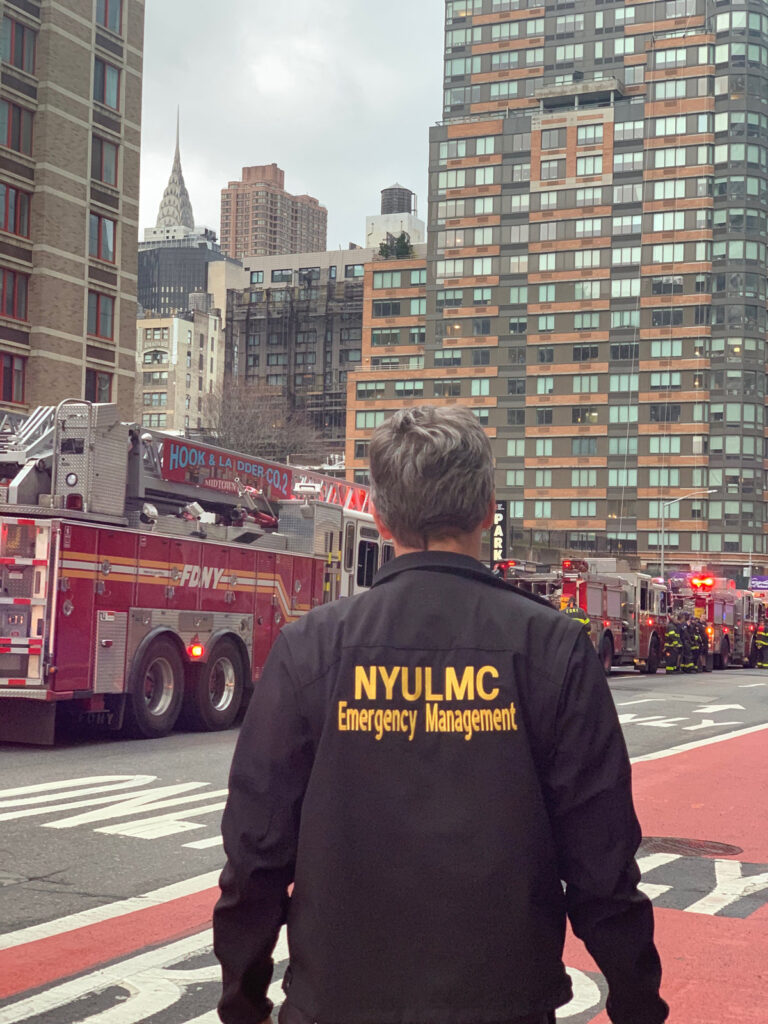On 5 May ESF took emergency management and health leaders into Tisch hospital on First Avenue in New York City via Zoom to get a unique insight into managing the COVID-19 pandemic.
Our experience in Australia of the pandemic is different to the USA and so ESF approached Kelly McKinney, Senior Director Emergency Management and Enterprise Resilience at NYU Langone Health Columbia University in the City of New York to share insights from their experience of managing the pandemic at its peak.
“We have been ‘working the job’ since its first days. Task forces that spanned the enterprise worked day and night to do everything humanly possible to prepare so when a tsunami of critically ill patients began to break over us, we thought we were ready. We were wrong!
The NYU Langone community has been under unprecedented stress over the past eight weeks. Nonessential personnel are isolated and quarantined at home. Some have ill family members at home, or are worried about getting ill themselves, creating psychological trauma for them and their loved ones. Sadly some have died. It falls on the healthcare workers to serve as a bridge from patients to family and to provide support for those who are dying. Nurses most often suffer from the weight of this responsibility.” Kelly McKinney
Langone Health has four large hospitals in Manhattan, Brooklyn and on Long Island. We were at Tisch, a university hospital with 300 in-patient beds which was increased by 700 in two weeks. These were all essentially ICU beds and located in places previously out of bounds, including the C suite conference rooms. Kelly talked about doing things in a way that broke the boundaries of what was previously considered reasonable.
By hosting this thought leadership event, ESF brought people together to connect, harness and grow the collective wisdom in relation to the pandemic. There was much to learn and Kelly left us with a sense of optimism and confidence, that capable people will be able to work creatively together to prepare and then deal with the crisis as it evolves. “It’s all gonna be alright!”
He and others clearly get much comfort from the daily 7pm clap out where other emergency services lead the community in thanking people working right across the health service throughout this crisis.
Listen to a recording of the conversation with Kelly here.

